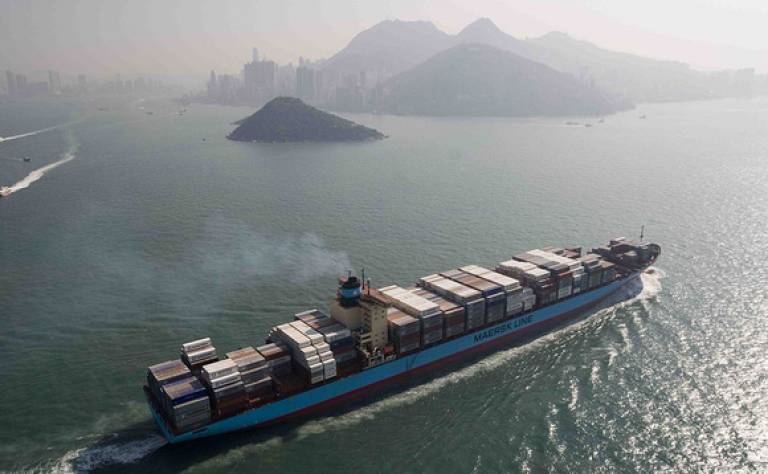IMO talks edge towards climate goals
23 May 2019
"the shipping industry must be reducing emissions as soon as possible" says UCL Energy's Dr Tristan Smith for an article on recent International Maritime Organisation HQ (IMO) talks on greenhouse gas targets

Countries agree on energy efficiency targets but little else, as big decisions on how to curb shipping emissions are once again deferred
Tightened energy efficiency targets and a commitment to further discuss proposed speed reduction rules were the key outcomes of the International Martime Organisation's (IMO) latest round of talks, held in London last week.
But environmental campaigners were quick to argue the results showed a "total lack of ambition" on the part of the shipping industry, which currently emits three per cent of global CO2 emissions but risks seeing its share expand to 10 per cent by 2050 unless efforts to decarbonise accelerate.
With some members and leading shipping operators calling for bolder climate policies and others continuing to push back against proposals that they fear would impose new costs on their national shipping industries, the IMO agreed to tighten energy efficiency targets for new vessels across seven ship types.
The accelerated targets for containers, general cargo ships, hybrid diesel-electric cruise ships, and LPG and LNG carriers cover about 30 per cent of ships and about 40 per cent of CO2 emitted from ships subject to energy efficiency regulations.
The measures could reduce CO2 emissions by 750 million tonnes of CO2 cumulatively from 2022 to 2050, equivalent to about two per cent of all emissions from the industry over that time period, according to an analysis by the International Council on Clean Transportation.
The IMO also committed to considering additional requirements for new ships after 2025 and looking at new efficiency requirements for in-use vehicles at the next meeting, fueling hopes standards could be strengthened as investment in cleaner shipping technologies steps up.
"IMO's move shows that further efficiency improvements are still possible for fossil fueled ships," said Bryan Comer, senior researcher in the ICCT's marine program. "Future standards should promote new technologies like wind assist and eventually zero emission fuels like hydrogen and electricity."
Read full article here
IMO talks edge towards climate goals
 Close
Close

